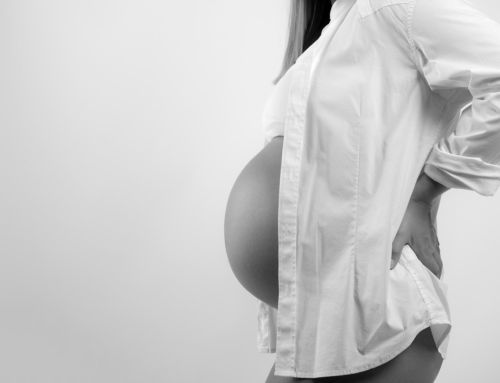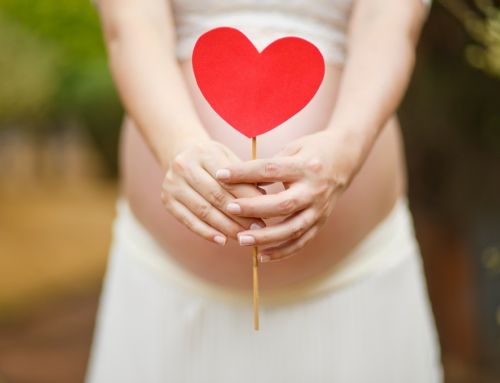Postpartum Hair Loss – Know More about It
By Pallavi Agarwal | Health and Wellness Writer and Editor
..
Postpartum hair loss is normal. Learn more about what causes postpartum hair loss, how long it lasts, and some natural postpartum hair loss remedies to help treat it.

All hair on our body grows in a cycle that can last anywhere from two to seven years. The active or growing phase of a strand of hair is called anagen and determines the length of our hair. After a period of time, the hair follicle enters a transition phase (called catagen) before entering its resting phase (telogen). Shedding occurs (exogen) and the process starts all over again.
What causes hair loss after baby?
Postpartum hair loss occurs after childbirth because of the sudden change of hormones in your body, particularly the change between progesterone and estrogen. The medical term for postpartum hair loss is telogen effluvium. The condition, which is also referred to as postpartum alopecia, is relatively common, affecting between 40-50% of women in the months following childbirth.
The body experiences soaring estrogen and progesterone levels during pregnancy, which causes hair to remain in an ongoing stage of growth, creating thicker, more lustrous strands. Then your hormones level out in the months following childbirth. Hair remains in this ‘resting’ stage for approximately three months before it falls out and new growth shows itself. Typically the regrowth is in the form of baby bangs appearing along the hairline.
How hormones affect your hair growth
During pregnancy, your body increases the amount of estrogen it produces which signals more follicles to enter the growing phase than the resting phase of the hair growth cycle. During this time, you may experience fuller, thicker hair. You may also notice that your hair grows significantly faster during pregnancy than it did before you were carrying your little one. Following childbirth, estrogen levels drop, returning to their pre-pregnancy levels, prompting the hair follicles to enter the resting phase and fewer hairs to grow. After about 3 months in the resting phase, the hair begins to shed. In addition to the estrogen and progesterone changes in the postpartum period, stress and nutrition impact hormone levels, which and can also influence hair growth.
Thyroiditis, caused by inflammation of the thyroid gland, results in an imbalance of thyroid hormones which can also affect your hair growth.
This is a temporary phase, and it’s unlikely that your hair will go from extra-thick to barely there, but everyone’s hormonal shift will manifest itself differently.
When does postpartum hair loss start?
Women may begin to experience postpartum hair loss two to four months after childbirth. The amount of hair loss you experience will be different for every woman. Your hair loss may seem more extreme if you have longer hair, or experienced a lot of hair growth during pregnancy.
How you can prevent postpartum hair fall
Can you stop this hair loss? Probably not, but you may be able to control it. Good nutrition is essential for postpartum women, and it can help keep your hair strong, healthy and intact, at least to some degree. Stay with your protein and iron intake. Ensure that you are getting regular, gentle-to-moderate exercise.
If the shedding seems out the ordinary, you may want to check in with your doctor to check for thyroid disorders or other health issues.
Best 5 practices to incorporate in your day to day schedule to treat postpartum hair loss:
Maintain a healthy diet
We all know that maintaining a healthy diet is an important factor for optimal health and well being. For postpartum women in particular, a healthy diet can help your overall recovery and stop postpartum hair loss from progressing.
Make sure your diet includes the necessary balance of vitamins and nutrients found primarily in vegetables, whole grains and fresh fruit. Remember to drink plenty of water throughout the day in order to stay hydrated.
Get Nutrition supplements
It’s not always easy for a new family or growing family to prepare good balanced meals, or even eat at regular times after the arrival of a baby. Speak with your doctor about taking vitamin or mineral supplements to help stop hair loss and promote hair regrowth.
- Vitamin B complex and/or biotin (B7)
- Iron
- Vitamin C
- Vitamin E
- Zinc
These nutrients may already be present in your postpartum recovery plan, Always ask the advice of your physician before starting any supplementation.
Minimize stress
Stress hormones, such as cortisol can have a negative impact on your hair cycle, compounding the hormonal changes after birth. While it may not be easy to relax with a newborn, you should be mindful to take some relaxing time out just for you. Try meditation or indulge in a regular massage or spa day. Gentle exercise such as modified postnatal yoga can also help reduce stress levels.
Try new Hairstyle
Adjust your styling to reduce the amount of “stress” you put on the hair. Limit vigorous brushing to avoid tearing or splitting the hair and try not to pull the hair forcefully into styles like ponytails, cornrow braids or weaves. The shorter style may also help reduce the appearance of postpartum hair loss.
Go natural
Instead of coloring your hair or using harsh gels and sprays for styling, try opt for natural oils, which are said to help strengthen hair growth and reduce or stop hair loss:
– Add a few drops of peppermint oil to your shampoo, it can help moisturize the hair and improve its shine.
– Consume fish or flaxseed oils. This may help restore optimal levels of essential fatty acids like omega-3, omega-6 and omega-9, which promote healthy hair.
– You can try to gently massage almond oil or castor oil into the scalp as this can stimulate hair growth.
In the End, Don’t Panic! Its totally normal, and you will get through it.
Typically, postpartum hair loss will correct itself as hormone levels return to normal. Try not to stress about temporary hair loss and accept that it is simply a normal part of recovering from childbirth.






